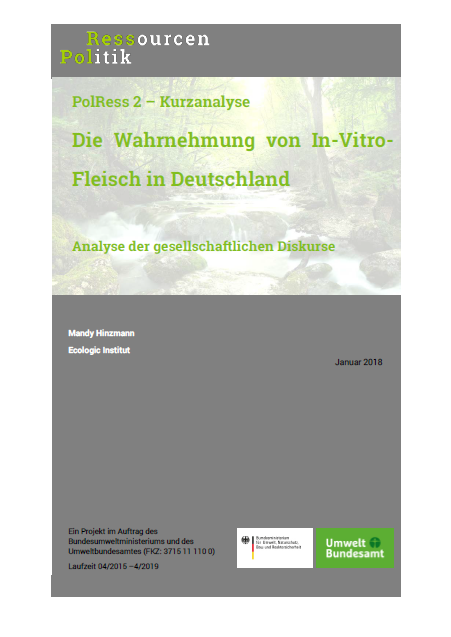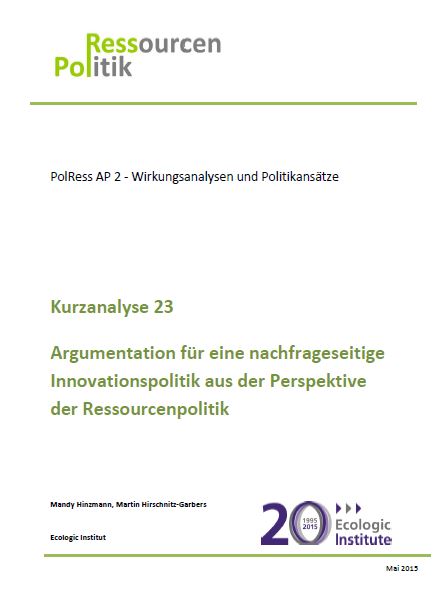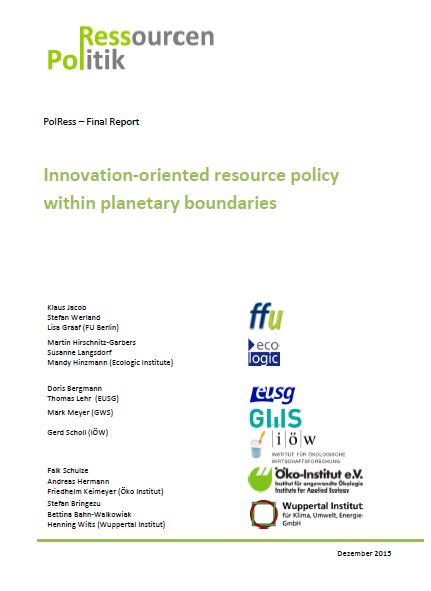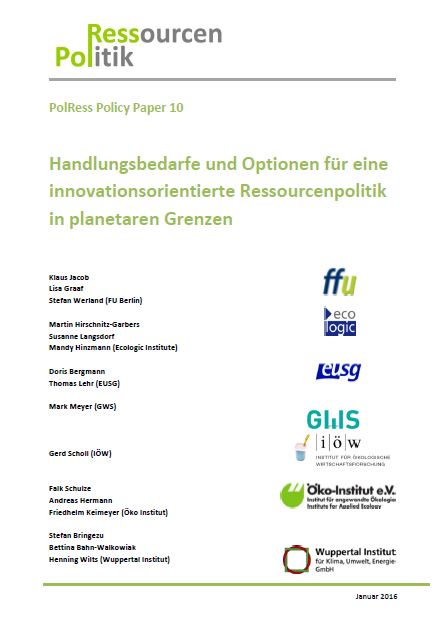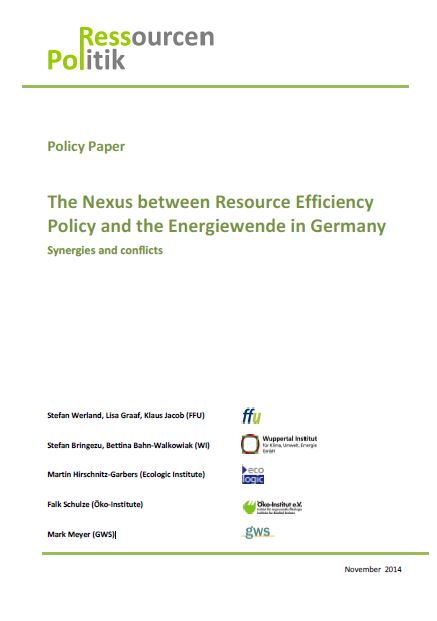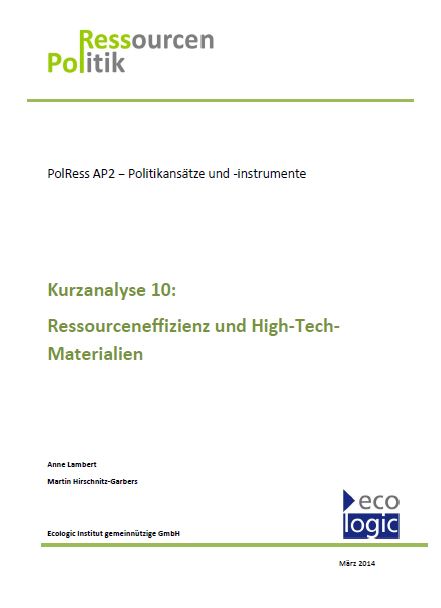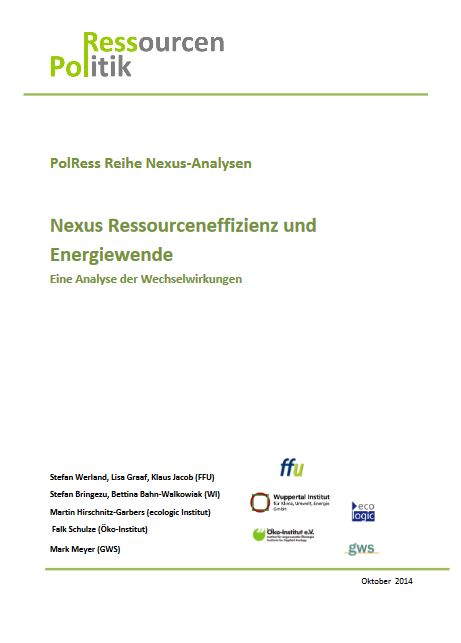Schlüsselfragen der Ressourcenpolitik in der kommenden Legislaturperiode: Ein Zwischenruf aus der Wissenschaft
PolRess Policy Paper 3
- Publication
- Citation
Bienge, Katrin; Martin Hirschnitz-Garbers; Klaus Jacob et al. 2013: Schlüsselfragen der Ressourcenpolitik in der kommenden Legislaturperiode: Ein Zwischenruf aus der Wissenschaft.
The German Resource Efficiency Program (ProgRess) must be considered a milestone in national resource policy. However, scientific findings point to a need to further develop ProgRess in the next legislative period in order to enhance its effectiveness. The main focus of further development should be to agree on ambitious and feasible targets and to identify effective policy instruments to foster innovation and internalization of external costs. Dr. Martin Hirschnitz-Garbers was co-author of a brief scientific perspective on this issue. The third PolRess Policy Paper is available for download.
Science calls for a further development of German resource policy, because planetary boundaries urgently require to reduce resource use for production and consumption. At the same time, increasing resource scarcities and price volatilities render action necessary.
Therefore, ambitious resource policy helps both achieving environmental as well as growth-related goals. For instance, increasing resource efficiency helps businesses save substantial costs and increase market share, while it allows them also to reduce their dependency on imported raw materials.
However, market mechanisms will not do the trick by themselves. In fact, several barriers prevent market mechanisms from functioning: e.g. in particular SMEs cannot bear the risk to take larger investments into innovation. Furthermore, lacking information about origin and characteristics of raw materials as well as widespread externalisation of costs associated with resource use leave market agents with insufficient knowledge and send out wrong price signals.
Against this background, resource policy should agree on ambitious, yet feasible targets and select the appropriate indicators to measure progress towards these targets. At the same time, effective policy instruments must be identified, which help businesses exploiting the benefits of increasing resource efficiency and counteract insufficient market mechanisms.






